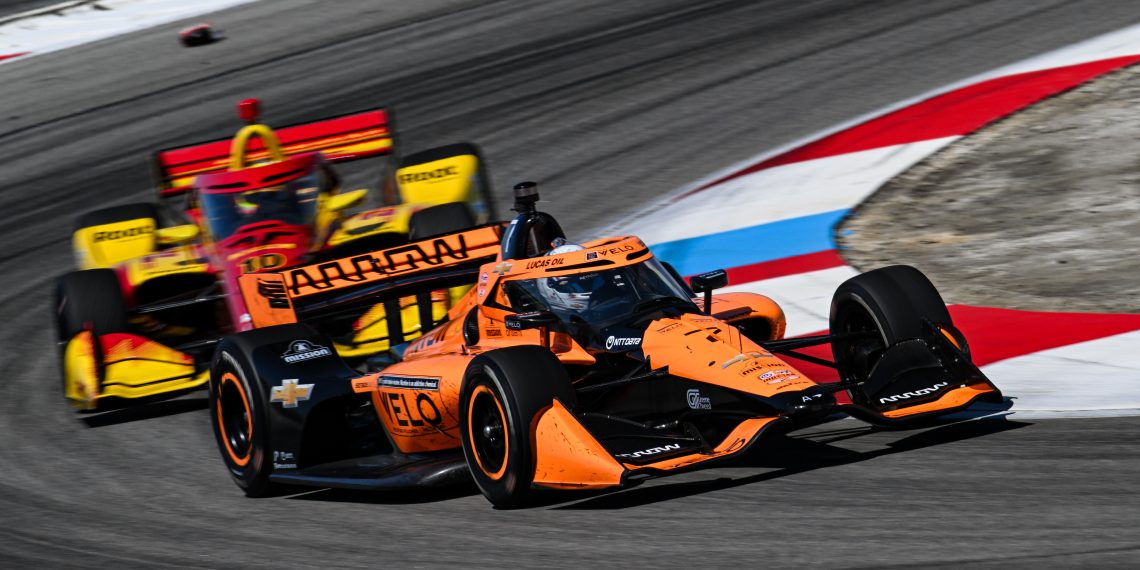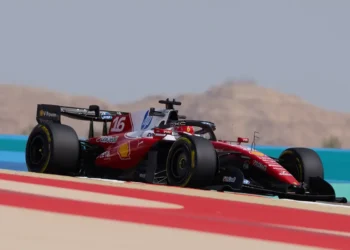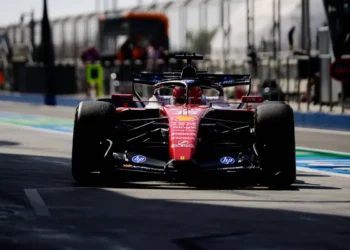The Thermal Club race saw Pato O’Ward secure a second-place finish despite running nearly half the race sans the aid of hybrid power. The race, which was dominated by Alex Palou in the closing laps, had O’Ward leading for a significant 51 laps.
O’Ward’s engineer was heard multiple times during the race, urging him to disengage the hybrid boost system. Post-race, the 25-year-old racing driver revealed that overheating issues plagued his hybrid system, which he could only utilize for about 50% of the race. Ambient air temperatures during the event almost touched a sweltering 90°F, with the track temperatures soaring to around 120°F in the afternoon.
Describing his ordeal, O’Ward stated, “For 50% of the race, I couldn’t use the hybrid system due to overheating.” He noted that the hybrid system could have been particularly beneficial due to the track’s stop-and-go corners and long straightaways. However, he added, even without these issues, a victory might still have eluded him.
O’Ward, however, was not the sole driver dealing with hybrid system complications. Santino Ferrucci also grappled with the inability to use his hybrid power boost for a large portion of the race. Scott McLaughlin had it worse, with his car experiencing a major failure associated with the new electric components. His system hit a critical failure mode on lap 15, necessitating an extended pit stop. Despite the crew draining the battery and resetting the entire system, McLaughlin was forced to bow out before the race’s conclusion due to persistent issues.
These complications underscore the teething problems IndyCar faces a year after mandating the hybrid system. It highlights the need for further reliability adjustments, particularly in enhancing the heat resistance of these units.
Notably, not all drivers battled these issues. Alex Palou, the race’s eventual winner, reported no restrictions on his hybrid usage as he clinched his second consecutive victory. This incident underscores the need for more reliable hybrid systems in racing, which, when functioning optimally, can significantly influence race outcomes.










